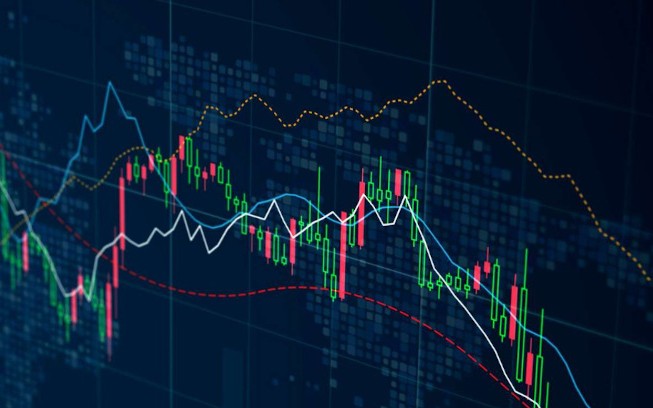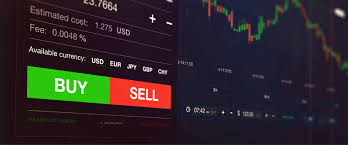Ultimate Guide to Forex Trading in Malaysia

Ultimate Guide to Forex Trading in Malaysia
Forex trading, or foreign exchange trading, has been gaining popularity in Malaysia over the past few years. As more Malaysians are becoming aware of the opportunities available in the Forex market, they are eager to learn how to navigate this exciting yet challenging landscape. In this guide, we will discuss various aspects of Forex trading in Malaysia, including the regulatory environment, trading strategies, and the best practices for success. Additionally, we’ll touch on key points regarding forex trading malaysia Forex Brokers in Côte d’Ivoire to provide a broader context of global trading.
The Regulatory Framework of Forex Trading in Malaysia
Before diving into Forex trading, it is crucial to understand the regulatory environment in Malaysia. The primary regulatory body for Forex trading is Bank Negara Malaysia (BNM), which oversees all financial institutions and ensures the integrity of the financial sector. BNM also has implemented strict guidelines for Forex brokers operating within Malaysia, reducing the risks associated with fraudulent practices.
As of now, Forex trading in Malaysia allows both local and international brokers to operate, provided they comply with the regulations set forth by BNM. Traders in Malaysia should ensure that they choose brokers authorized by BNM to guarantee a safe trading experience. Regulatory compliance assures traders of necessary protections, including adherence to fair trading practices and the safeguarding of client funds.
Understanding the Forex Market
The Forex market is where traders buy and sell currencies from various countries. The Forex market operates 24 hours a day, five days a week, accommodating trading activities across different time zones. This continuous operation enables Malaysian traders to access the market at their convenience.
Trading in the Forex market involves understanding currency pairs, with each pair consisting of a base currency and a quote currency. For example, in the EUR/USD pair, EUR is the base currency and USD is the quote currency. Exchange rates fluctuate based on numerous factors including economic indicators, geopolitical stability, and market sentiment, presenting both opportunities and risks for traders.
Choosing the Right Forex Broker

Selecting a Forex broker can significantly impact a trader’s performance and overall experience. Malaysian traders should consider several factors when choosing a broker, including:
- Regulation: Ensure the broker is regulated by BNM or reputable international organizations.
- Trading Platform: The broker should offer an intuitive and reliable trading platform that suits the trader’s needs.
- Trading Costs: Absolutely review the fees involved, including spreads, commissions, and withdrawal fees.
- Customer Support: Efficient customer support is essential for resolving any issues that may arise.
- Education and Resources: A broker that offers educational resources, tools, and market analysis can be of tremendous benefit to newcomers.
Basic Trading Strategies for Beginners
New traders should always begin with basic trading strategies to build their confidence and experience. Here are three popular strategies suited for beginners:
1. Scalping
This strategy involves making numerous trades throughout the day to skim small profits from minor price fluctuations. Scalping requires quick decision-making and a solid understanding of the market. Traders using this strategy should make sure they are familiar with their trading platform and can execute trades instantly.
2. Day Trading
Day trading entails opening and closing trades within the same trading day. Traders focus on intraday price movements, taking advantage of volatility to earn profits. To succeed in this strategy, traders should be well-versed in technical analysis and market trends.

3. Swing Trading
Swing trading aims to capture short to medium-term moves in the market. Unlike scalping or day trading, swing traders are willing to hold positions for several days. This strategy suits those who cannot dedicate their entire day to trading and prefer a more hands-off approach.
Risk Management in Forex Trading
Understanding and implementing risk management is crucial for long-term success in Forex trading. Traders should never risk more than they can afford to lose and always employ stop-loss orders to mitigate potential losses.
Here are a few essential risk management techniques:
- Position Sizing: Determine the appropriate size for each trade based on your account balance and risk tolerance.
- Diversification: Avoid putting all your capital into one trade or currency pair; diversify to spread risk.
- Education: Continuously educate yourself about the market, trading strategies, and risk factors.
- Emotional Control: Maintain emotional control during trading; avoid making impulsive decisions driven by fear or greed.
Conclusion
Forex trading in Malaysia presents numerous opportunities for traders willing to learn and adapt to the dynamic market landscape. By understanding the regulatory framework, choosing the right broker, implementing effective trading strategies, and establishing sound risk management measures, traders can navigate the complexities of the Forex market successfully. As Malaysia continues to embrace Forex trading, it is essential for traders to stay informed and make educated decisions to achieve their financial goals.
Ultimately, Forex trading offers the potential for significant profits, but it is accompanied by risks that must be managed carefully. With diligence, education, and the right approach, Malaysian traders can find success in the world of Forex trading.


